'Immunity and Cancer'
30 June & 01 July 2021 | Virtual Event
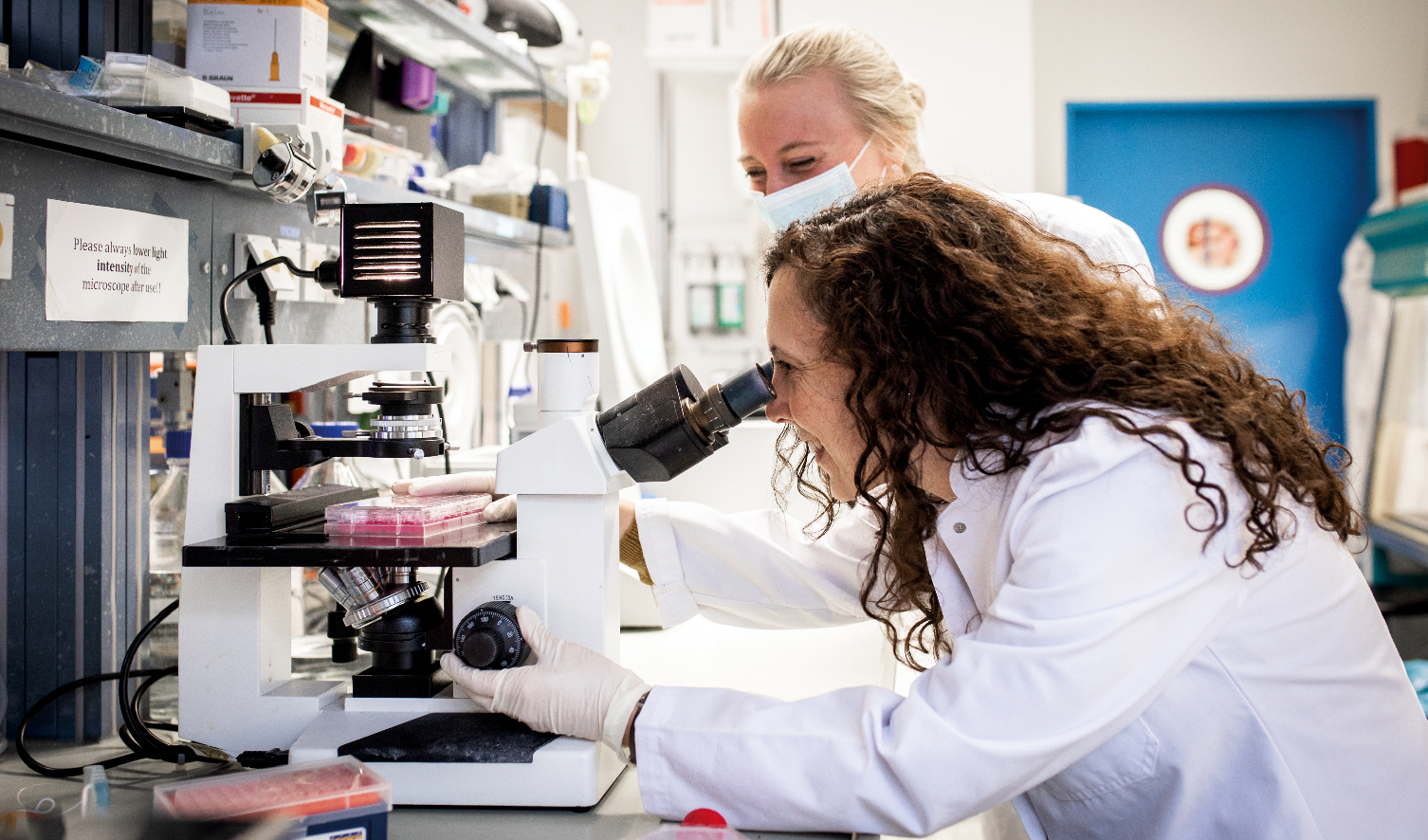
© Juli Eberle / TUM
The 'Women in Science' Symposium, organized by the CRC 1335 'Aberrant Immune Signals in Cancer', will host female international leaders in the field of Cancer and Immunology. The symposium will provide insights into top-class research and especially aims at encouraging female scientists to pursue a successful career in academic research by demonstrating exemplary career paths of leading female role models. The symposium will be complemented by an exciting panel discussion between scientists and renowned experts in woman's rights.
The virtual symposium is free of charge.
Organizing team
Prof. Dr. Christina Zielinski
Dr. Maike Buchner
Dr. Silvia Thöne
1:30 pm | Welcome |
Prof. Dr. Christina Zielinski | |
Prof. Dr. Jürgen Ruland | |
Session 1 | Chair: Prof. Dr. Christina Zielinski |
| 1:40 pm | Dr. Andrea Oeckinghaus Ral GTPases in pancreatic plasticity and cancer development |
| 2:10 pm | Prof. Dr. Claudia Waskow (Re)generation of hematopoietic stem cells |
| 2:40 pm | Inge Bell Women in science - a gender perspective |
Break | |
Session 2 | Chair: Prof. Dr. Barbara Schraml |
| 3:40 pm | Prof. Dr. Irmela Jeremias CRISPR-Cas9 in vivo screens in patient-derived xenografts identify an immune-relevant metalloproteinase as novel vulnerability in leukemia |
| 4:10 pm | Prof. Dr. Sabine Werner Stromal-epithelial cross-talk in tissue repair and cancer |
4:40 pm | Panel Discussion
Panelists Dr. Maike Buchner Prof. Dr. Marion Kiechle Prof. Dr. Percy Knolle Dr. Thomas Sattelberger |
Session 3 | Chair: Dr. Katja Steiger |
| 9:00 am | Prof. Dr. Irmgard Förster Environmental control of immune homeostasis and cellular metabolism by the AhR/AhRR pathway |
| 9:30 am | Dr. Kathrin del la Rosa ACE2 and antibody responses in severe COVID-19 |
| 10:00 am | Dr. Anna Obenauf What does not kill it makes it stronger: Acquired resistance to targeted therapy confers cross-resistance to immunotherapy |
Break | |
Session 4 | Chair: Dr. Vanesa Fernández-Sáiz |
11:00 am | Prof. Dr. Gabriele Bergers The Yin Yang of the vascular and immune system in cancer |
11:30 am | Prof. Dr. Maries van den Broek CD39+ PD-1+ CD8+ T-cells mediated metastatic dormancy in breast cancer |
12:00 pm | Prof. Dr. Monika Wolkers The intricate regulation of T cell responses by RNA-binding proteins |
12:30 pm | Inge Bell The role of unconscious bias in situations of anonymous accusations: what research organizations can do right or wrong? |
| 1:00 pm | Outlook |

© Uwe Klössing
Inge Bell
Executive Coach & Consultant
Businesswoman
Human Rights Defender
Inge Bell is a media entrepreneur, Diversity Advisor and Human Rights Defender. Inge Bell was born in Transylvania /Romania in 1967 and escaped with her family from the socialist dictatorship in 1971. Bell grew up in Munich, where she studied physics and Electrical Engineering at the TU Munich and worked long years as a working student for Fraunhofer Institute for solid-state technology with Prof. Ingolf Ruge. After the Wall came down she quitted her studies at TUM in 1992 in favour of Eastern European studies at the LMU and in London. Bell became a renown expert on Eastern Europe reporting on organized crime and human rights violations as a long-standing investigative reporter for foreign desk for ARD (First German Television) between 1995 and 2010. During those years as a publicist she initiated and still maintains humanitarian aid projects for women in distress, disabled people and victims of human trafficking in the Balkans and Germany. With her expertise both in Media as in Women Rights she founded her own Media and Consulting companies in 2011 and works today as an Executive and Leadership Coach and Consultant with the focus on Female Leadership and D&I. She has several mandates as a Diversity Advisor and Head of Diversity in large and mid-sized - mainly male dominated - enterprises in Germany.
She is the second chairwoman for both TERRE DES FEMMES, Germany’s largest women’s rights organisation, and SOLWODI, Germany’s largest organisation for victims of human trafficking and violence. Inge Bell was awarded the prize “Woman of Europe” by The European Movement in 2007. In 2012 Federal President Gauck honored her with the German Federal Cross of Merit for her commitment to human rights issues.
Bell’s Motto: “Courage is stronger.”
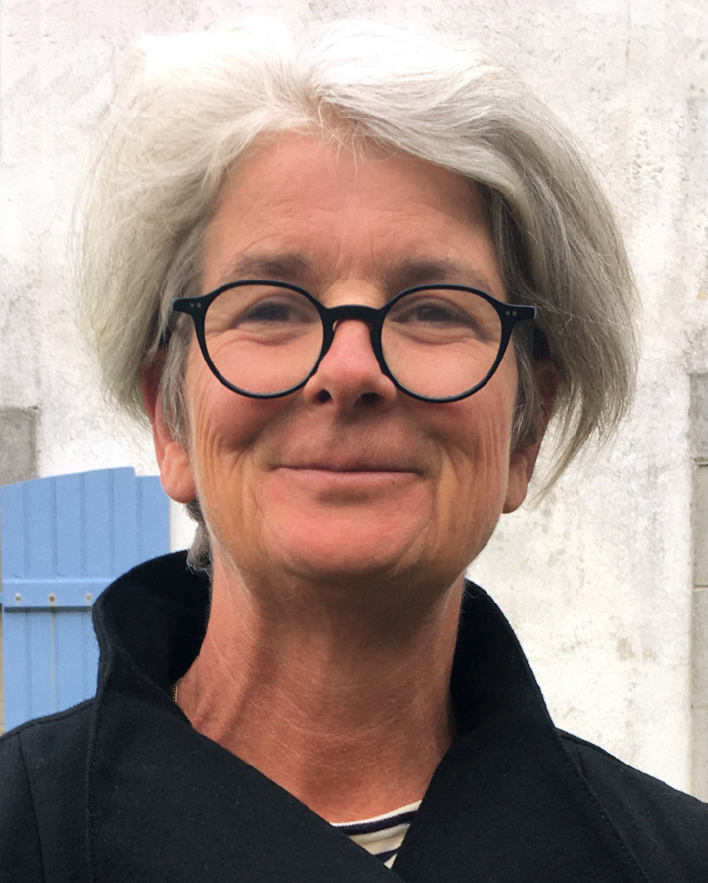
Prof. Dr. Gabriele Bergers
Laboratory of Tumor Microenvironment and Therapeutic Resistance
VIB-KU Leuven Center for Cancer Biology
Department of Oncology
University of Leuven
Leuven, Belgium
Dr. Gabriele Bergers is a Professor of Oncology at the University of Leuven and a group leader at the Vlaams Instituut voor Biotechnologie (VIB)-Center for Cancer Biology in Leuven since 2016. She has been a Professor in the Department of Neurological Surgery and a PI in the Brain Tumor Research Center (BTRC) at the Helen Diller Family Comprehensive Cancer Center at the University of California, San Francisco, for over 20 years. Dr. Bergers was the co-director of the TMEM Brain Tumor Center at UCSF until 2016. She has made seminal discoveries about the regulation and function of the tumor vasculature, revealed intrinsic and evasive resistance mechanisms of tumors to antiangiogenic therapy, and took advantage of endothelial plasticity to turn tumor vessels into portals enabling lymphocyte infiltration and activity in tumors. Dr. Bergers has received several awards for her research, including the Sidney Kimmel, the Sandler Opportunity, the UCSF Breakthrough Biomedical Research, and the Judah Folkman award. She has been an external advisory board member for various universities and pharmaceutical companies and served on multiple study sections (NIH, ERC, AIRC, CPRIT). Dr. Bergers was the co-director of the TMEM Brain Tumor Center at UCSF until 2016. She is a scientific co-founder of Oncurious. During the past ten years, Dr. Bergers gave more than 140 invited lectures, of which many as Keynote or Plenary speaker at national and international conferences and universities in the US, Europe, Asia, and Australia.
Dr. Bergers is very dedicated to the mentorship of early-career investigators. She co-organized the “Women in Science” Symposium at KU Leuven in 2019 and is a mentor in the LIBRA Career Compass mentorship program from EU-Life to support the career development of women scientists.
The mission of research: Tumors are often portrayed as wounds that do not heal because they undergo continuous stromal remodeling and vascular growth with immunosuppressive features displaying characteristics of the proliferative resolution phase in the wound repair process. Indeed, the onset of angiogenesis and escape from immunosurveillance not only are described as hallmarks of cancer but also are functionally inter-regulated, enabling tumor propagation and progression. One of the primary endeavors of her team is to understand and therapeutically manipulate the heterogeneous communication between the endothelium and the different immune cells in a heterogeneous tumor cell compartment to awaken an immune-stimulating phase in the “tumor wound” with the final goal to eliminate tumor cells and invigorate tissue homeostasis.
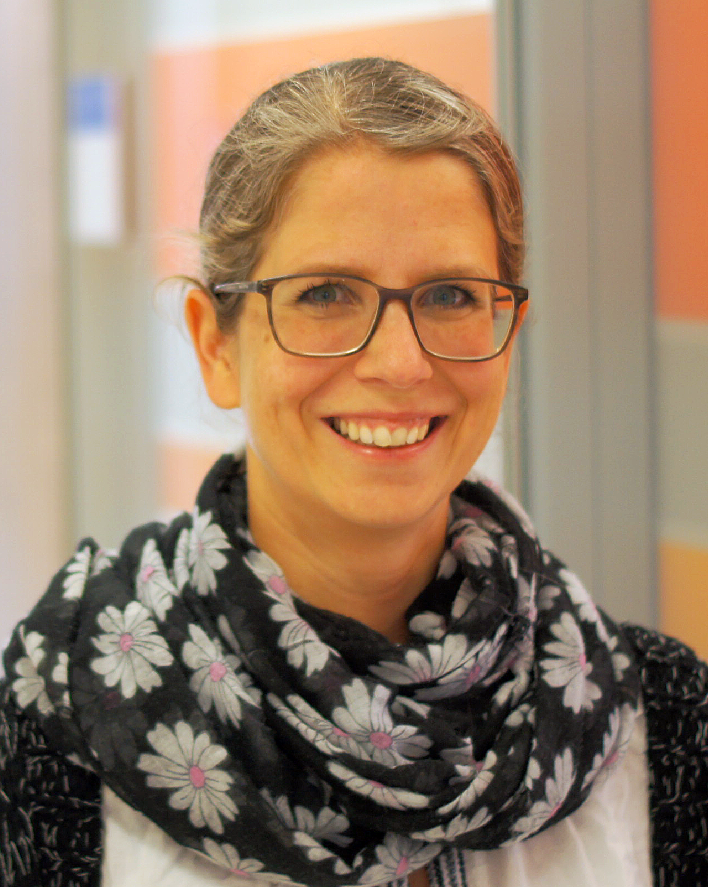
Dr. Maike Buchner
Institute of Clinical Chemistry and Pathobiochemistry
TUM School of Medicine
Technical University of Munich
Munich, Germany
Maike Buchner received her Master in Molecular Medicine in Freiburg in 2006. She completed her PhD with honors in 2010 with the project 'Inhibition of Microenvironmental Pathways: a Novel Therapeutic Approach in Chronic Lymphocytic Leukemia’ in the laboratory of Hendrik Veelken in Freiburg and then conducted her postdoctoral studies at the University of California, San Francisco in the laboratory of Markus Müschen. Here, she studied normal B cell development and transformation to acute lymphoblastic leukemia (ALL). She contributed to studies involving signaling thresholds in ALL and negative feedback inhibition. With these insights together with her PhD experience, her current research is focusing on negative feedback inhibition in CLL.
The focus of Maike Buchner’s research is the dissection of divergent signaling events in malignant versus normal B cells, in particular downstream of the B cell receptor and the regulation of signaling strength, with focus on CLL. Via analysis of primary patient samples and healthy donors as well as preclinical models, she investigates the impact of inhibition of negative regulators on CLL and their microenvironment. In 2016, she started her independent research group with a Max-Eder-Fellowship by the German Cancer Foundation at the Institute of Clinical Chemistry and Pathobiochemistry in Munich.
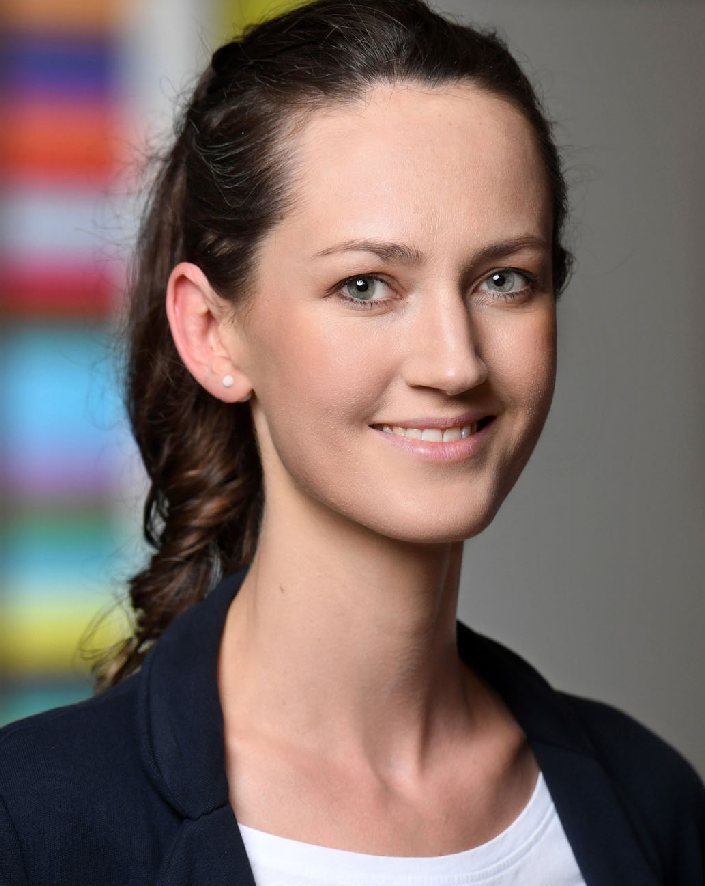
Dr. Kathrin de la Rosa
Max Delbrück Center for Molecular Medicine of the Helmholtz Association
Berlin, Germany
The de la Rosa research group studies human B cells and monoclonal antibodies to address fundamental biological questions and translate them into new therapeutic strategies. By combining classical and novel antibody analysis techniques the group studies the molecular mechanisms of antibody diversification and the determinants of immune recognition by antibodies. The studies aim to define correlates of protection and pave the way for new conceptual approaches for vaccine design.
After completing her doctoral thesis on human B cell deficiencies at the University of Freiburg, Kathrin de la Rosa joined as a postdoctoral fellow the research group of Antonio Lanzavecchia at the Institute for Biomedicine in Bellinzona (Switzerland) to study monoclonal antibodies in infectious diseases. In 2018 she started her research group at the Max Delbrück Center for Molecular Medicine (MDC) in Berlin with an Emmy Noether Fellowship from the German Research Foundation (DFG). In 2020 she was awarded the European Research Council (ERC) starting grant.
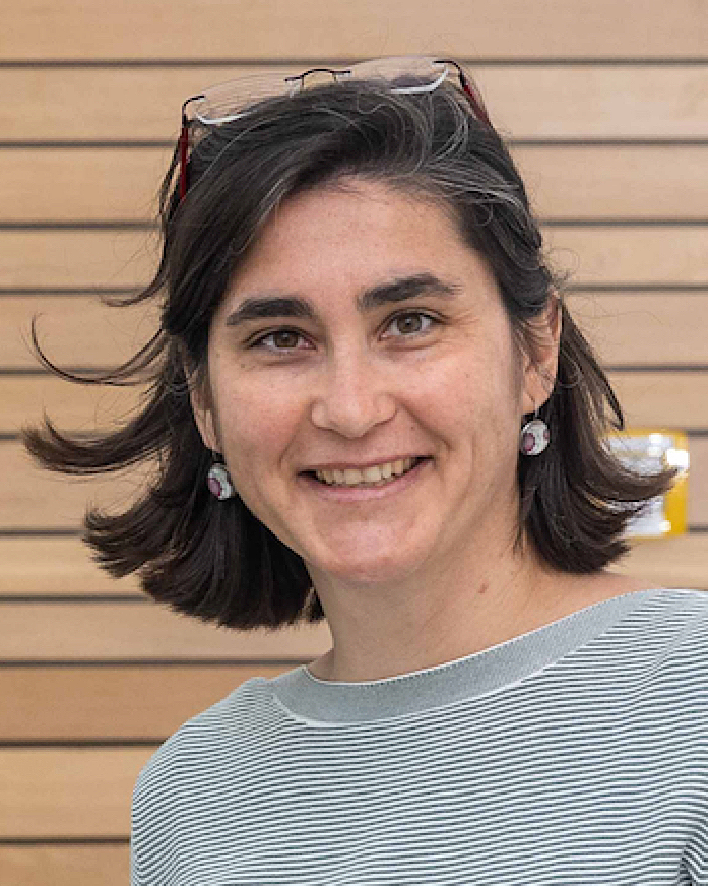
Dr. Vanesa Fernández-Sáiz
3rd Medical Department
TUM School of Medicine
Technical University of Munich
Munich, Germany
Vanesa Fernández completed a research stay at Yale University in the Department of Molecular Biophysics before receiving a Doctorate summa cum laude in the topic of protein folding and chaperones in 2006 in Bilbao, Spain. She obtained a postdoctoral fellowship to join the Max Planck Institute in Martinsried where she described the role of the ubiquitin-selective chaperone p97 in human diseases. Vanesa joined the university hospital Klinikum rechts der Isar in 2009 to study dysregulated ubiquitin events in cancer. She has described new substrates of E3 ubiquitin ligases and deubiquitinases and her work has significantly contributed to the description of Cereblon, the target of immunomodulatory drugs, as a chaperone for transmembrane proteins.
Since 2018, Vanesa is working on the ubiquitin regulation of the NF-kB transcription factor c-Rel with the fundings of the SFB1335 “Aberrrant Immune Signals in Cancer”. Her laboratory integrates cutting edge protein biochemistry and cell biology techologies to uncover new diagnostic biomarkers and innovative therapies in cancer.
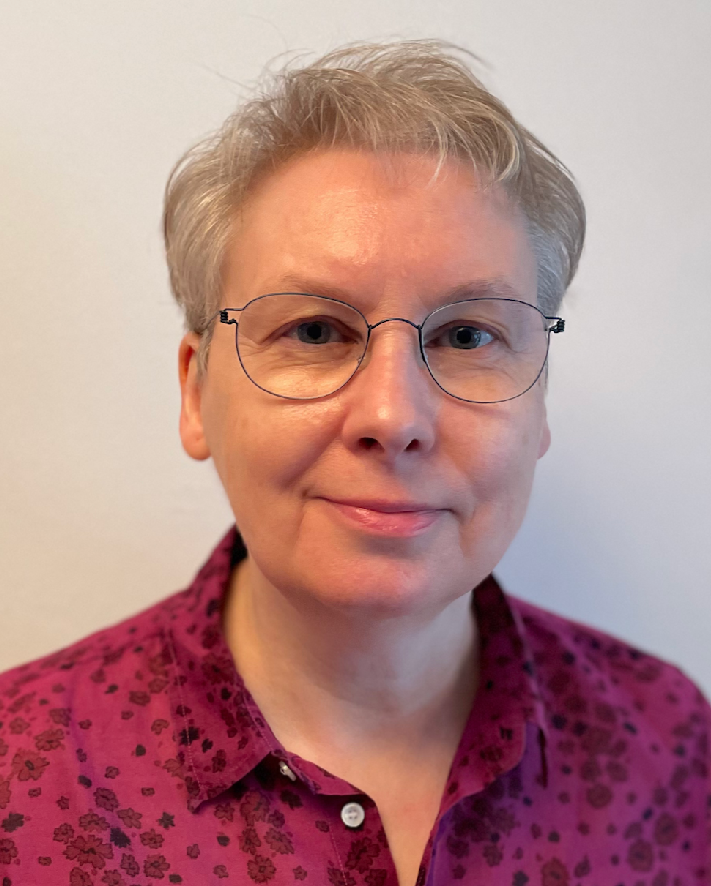
Prof. Dr. Irmgard Förster
Immunology and Environment, Life and Medical Sciences (LIMES) Institute
University of Bonn
Bonn, Germany
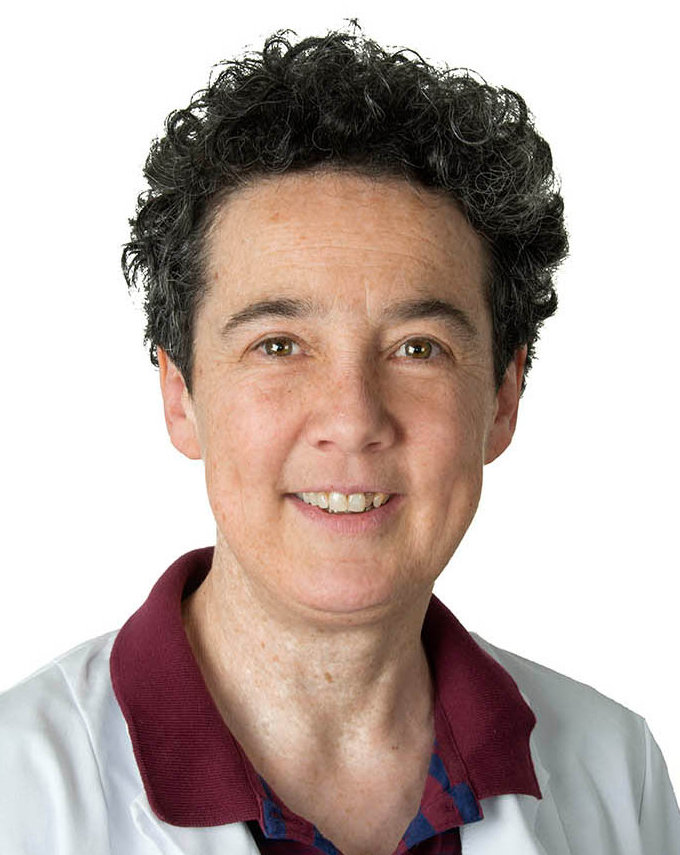
Prof. Dr. Irmela Jeremias
Research Unit Apoptosis in Hematopoietic Stem Cells
Helmholtz Zentrum München
Munich, Germany
Irmela Jeremias, M.D., is Head of Department at Helmholtz Center Munich and a Mildred Scheel Research Professor of German Cancer Aid at Ludwig Maximilians University (LMU). She performed her post-doctoral training at German Cancer Research Center (DKFZ) in Heidelberg, Germany, and completed her residency in Pediatrics at LMU. She currently holds a European Research Council Consolidator Grant.
The Jeremias lab aims at developing novel strategies to eliminate tumors. We search for unique features which might represent vulnerabilities exploitable for treatment. For a tight relation to the patient’s clinical situation, we study patient-derived xenograft (PDX) models and genetically engineer them for advanced preclinical in vivo trials. We focus on challenging subpopulations like dormant cells which later induce relapse and study leukemia as model disease.
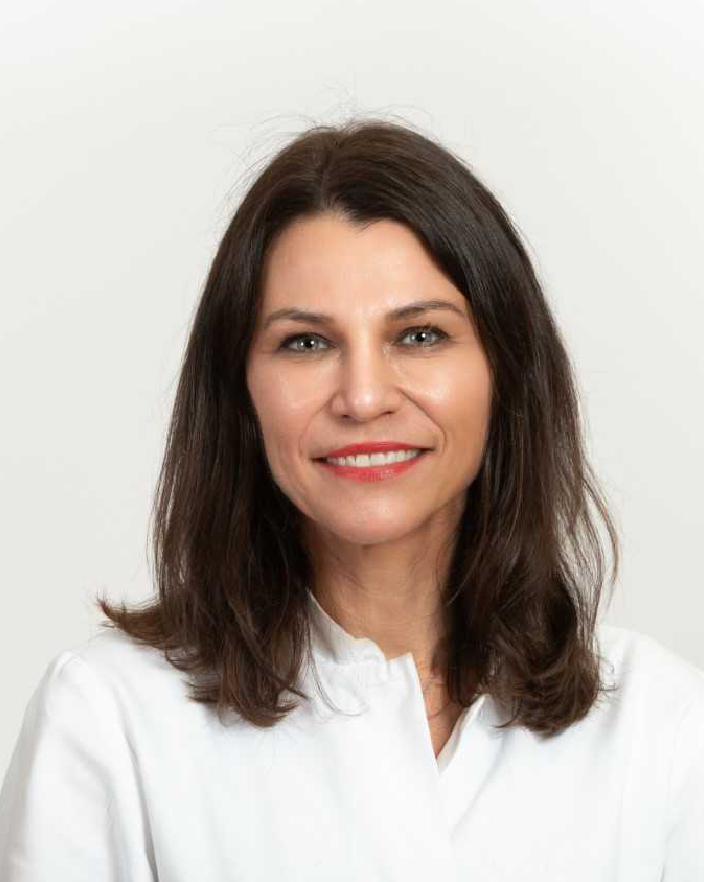
Prof. Dr. Marion Kiechle
Department of Gynecology
and Center for Hereditary Breast and Ovarian Cancer
TUM School of Medicine
Technical University of Munich
Munich, Germany
Prof. Marion Kiechle is the director of the University Women's Clinic, Klinikum rechts der Isar of the Technical University of Munich, former Bavarian State Minister for Science and the Arts, and bestselling author.
In 2000, she was the first woman in the German-speaking world to be appointed to the TUM Chair of Gynecology and Obstetrics and was appointed Director of the Women's Clinic at the Klinikum rechts der Isar. Her focus is on surgical gynecology, including minimally invasive procedures and in the treatment of female cancers, nutritional medicine and digital medicine. Her research focus is on gynecologic oncology, with particular emphasis on hereditary cancers of women, early cancer detection, and the establishment of individualized cancer targets. In clinical research, she focuses on the diagnosis, treatment and prevention of tumor diseases in women.
From May 2001 to March 2018, she was the Chair of the Bioethics Commission of the Bavarian State Government and Vice-Chair of the ZES (Central Ethics Committee for Stem Cell Research of the German Government). From March 2018 to November 2018, she was Bavarian State Minister for Science and the Arts.
Since 2015, she has been a member of the German Academy of Sciences, Leopoldina. She received the Order of Merit of the Federal Republic of Germany in 2007 and the Bavarian Order of Merit in 2015. She is also a bestselling author of nonfiction books on medical topics ("Day by Day Younger," "Day by Day Lighter").
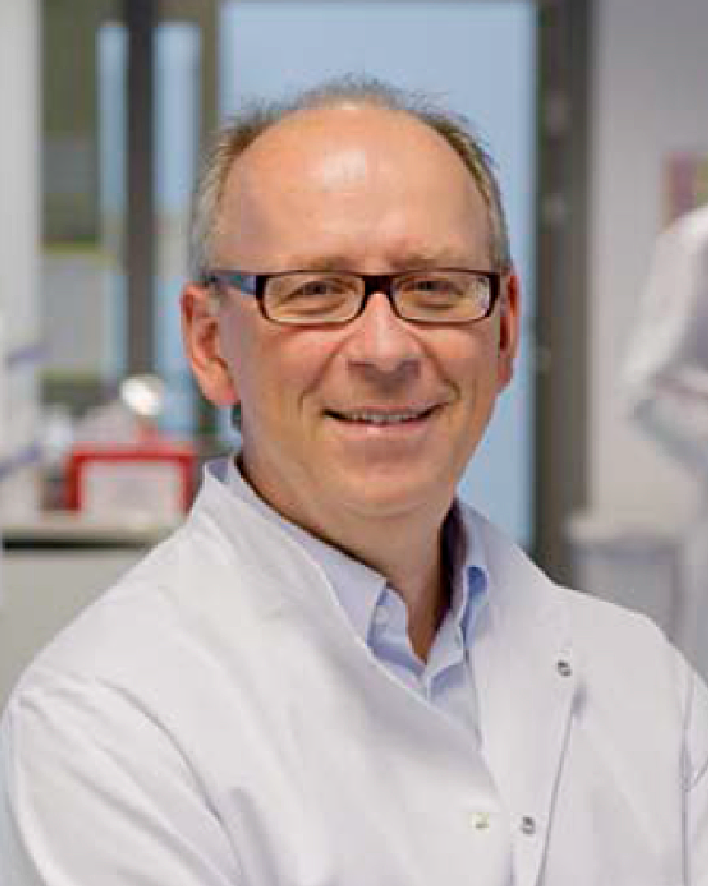
Prof. Dr. Percy Knolle
Institute of Molecular Immunology and Experimental Oncology
School of Medicine
Technical University of Munich
Munich, Germany
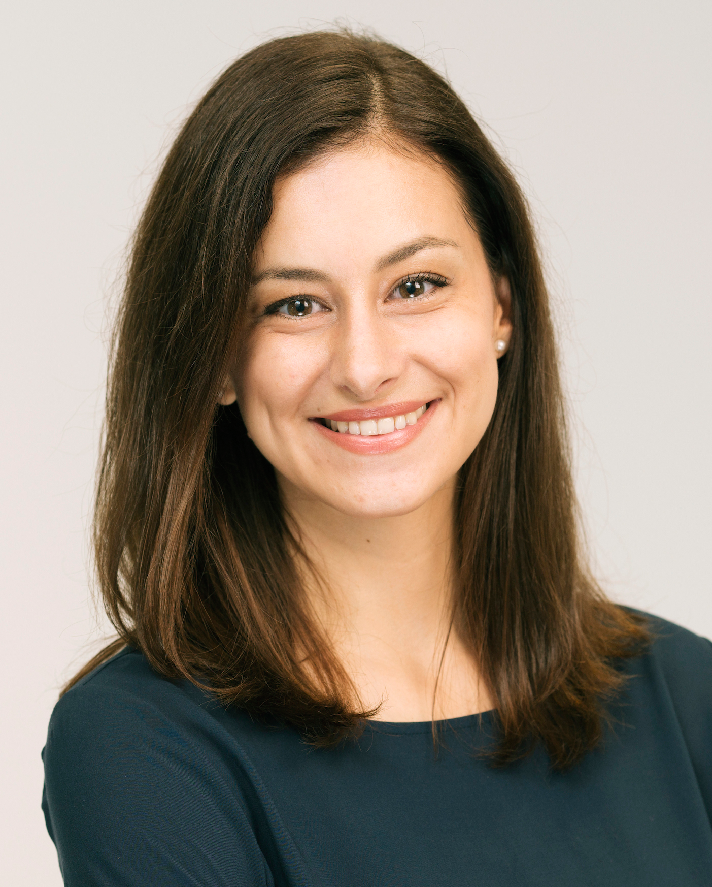
Dr. Anna Obenauf
Research Institute of Molecular Pathology (IMP)
Vienna BioCenter (VBC)
Vienna, Austria
Anna Obenauf is a group leader at the Research Institute of Molecular Pathology (IMP) in Vienna. Her laboratory works at the interface between mechanistic biology and clinically relevant problems, with the goal to identify novel therapeutic approaches and rational therapeutic combinations for metastatic cancers. Recent work includes the discovery that acquired resistance to targeted therapy leads to cross-resistance to immunotherapy, despite their entirely different mode of action (Haas et al., Nature Cancer, in press), or that resistance to targeted therapy, including the resistance-conferring mutations and epigenetic mutations are frequently acquired (Umkehrer et al. 2020, Nature Biotechnology), and they have identified novel therapeutic approaches for rare cancers, such as Merkel cell carcinoma (Leiendecker et al., EMBO MM, 2020). Earlier work described the therapy-induced secretome as a novel driver of therapy resistance and tumor progression (Obenauf et al., 2015, Nature), and Serpins as crucial mediators of brain metastasis (Valiente et al., 2014, Cell). To make new discoveries, a key effort in the Obenauf lab is to deploy and develop new technologies. They, for example, recently developed a functional lineage tracing approach termed CaTCH (CRISPRa tracing of clones in heterogeneous cell populations, Umkehrer et al. 2020, Nature Biotechnology), which allows to trace clones through evolutionary bottlenecks, but also allows to “go back in time” to retrospectively isolate founding clones from millions of cells prior to evolutionary selection. Thus, CaTCH has the potential to give unprecedented insights into tumor evolution.
Work in the Obenauf lab is funded by the WWTF and in 2018, she received an ERC Starting Grant for her research project "Rational combination therapies for metastatic cancer/CombaTCancer". In 2019, she was elected as a member of the Young Academy of the Austrian Academy of Sciences
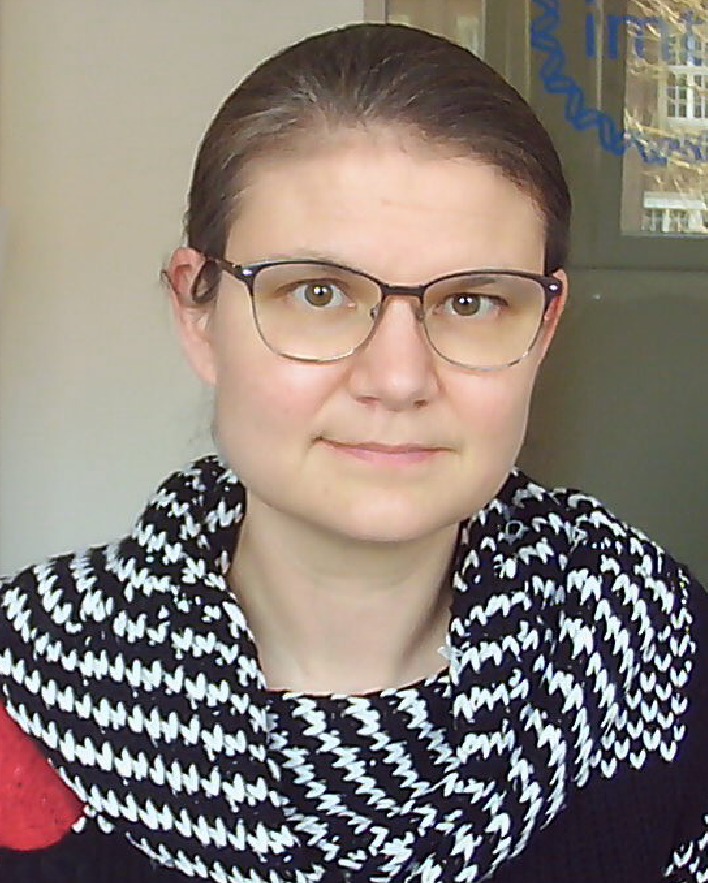
Dr. Andrea Oeckinghaus
Institute of Molecular Tumorbiology
Faculty of Medicine
University Münster
Münster, Germany
Research in Dr. Oeckinghaus’s laboratory at the Institute of Molecular Tumorbiology of the University of Münster addresses functions of small GTPases and their regulators in tumorbiology and immunology. Currently their focus is on molecular control of the small GTPases Ral and Rheb through their cognate GTPase activating protein (GAP) complexes RalGAP and TSC1/2 and on the role of Ral GTPases in acinar plasticity during pancreatitis as well was in pancreatic cancer development.
Dr. Oeckinghaus is a biochemist by training and obtained her diploma from the University of Tübingen. For her doctoral research, she worked at the Max-Delbrück-Center for Molecular Medicine in Berlin with Dr. Daniel Krappmann and received her PhD from the Biochemistry Faculty of the Free University Berlin. During this time, she identified regulatory ubiquitination as a critical event for T cell receptor-mediated signal propagation in lymphocytes. Following her interest in mechanisms controlling signal transduction and immunity, she then joined the laboratory of Dr. Sankar Ghosh at the Department of Immunobiology at Yale University and later the Department of Microbiology and Immunology at Columbia University. Here, she identified a previously unknown function of κB-Ras proteins in GAP-mediated control of Ral GTPase activity, which led her to develop my independent research profile in the field of GTPase biology.
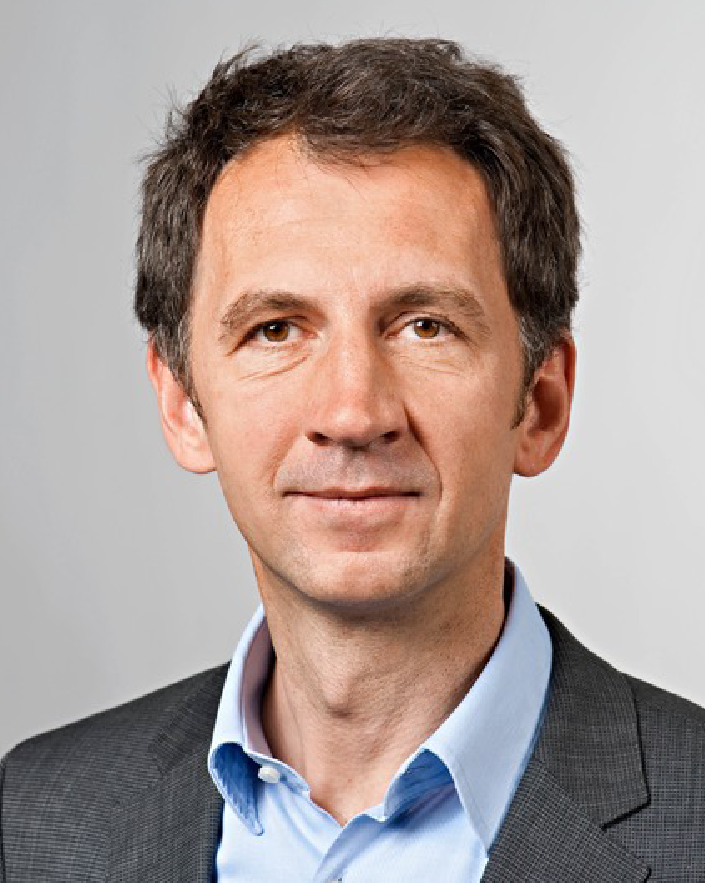
Prof. Dr. Jürgen Ruland
Institute of Clinical Chemistry and Pathobiochemistry
TUM School of Medicine
Technical University of Munich
Munich, Germany
Prof. Ruland (*1966) concentrates his research on signaling processes in the immune system, both normal and when deregulated due to disease. With his research group, he investigates how normal immune cells recognize pathogens and initiate immune defense. The group is also examining how pathologically deregulated signals in blood cells lead to the development of cancer. The goal of their research is to provide a basis for therapeutic manipulation of the immune system.
Prof. Ruland studied medicine in Giessen and Pittsburgh with a degree in pharmacology. After medical and research work at TUM, Freiburg University, the Ontario Cancer Institute and the AMGEN Research Institute at the University of Toronto, he became head of a junior research group of the German Cancer Aid at TUM in 2003. He completed his postdoctoral studies in medicine in 2005 and served as professor of molecular immunology at TUM from 2010 to 2012. In 2012, he was appointed professor of clinical chemistry at TUM. He is member of the National Academy of Sciences Leopoldina, the Bavarian Academy of Sciences and Humanities and the German Cancer Aid committee for promoting young medical professionals and scientists. He is the spokesperson for the SFB 1335 "Aberrant Immune Signals in Cancer" and successfully raised his second ERC Advanced Grant in 2019. In 2021, he received the Gottfried Wilhelm Leibniz-Prize of the DFG.
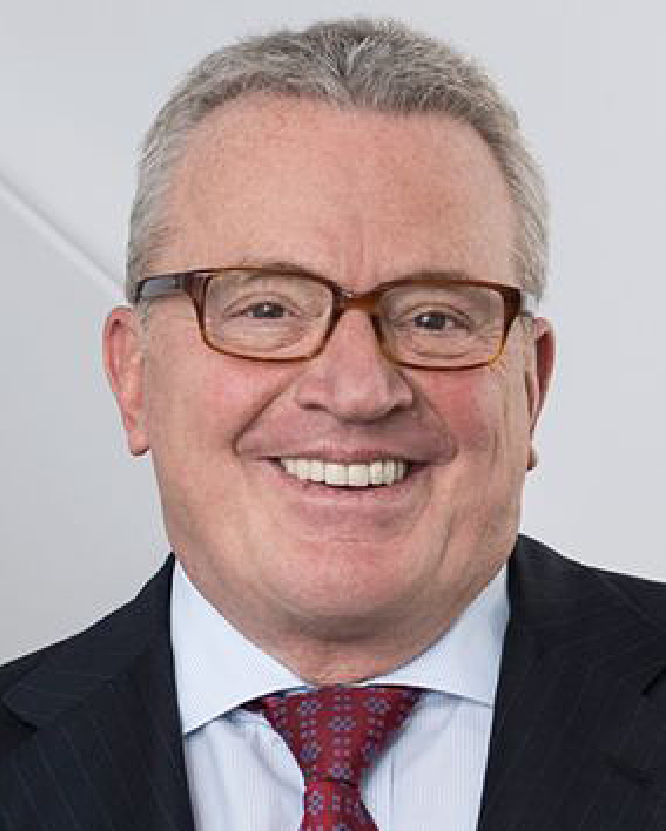
Dr. Thomas Sattelberger MdB
Member of the BundestagSpokesman of the FDP for innovation, education and research
Since October 2017, Thomas Sattelberger is member of the German Bundestag and Spokesman of the FDP for innovation, education and research.
He was a member of the executive boards of German DAX companies for many years. As Chief Human Resources Officer and Labor Director, he worked for Deutsche Telekom from 2007 to 2012 and for automotive supplier Continental from 2003 to 2007. From 1994, Sattelberger was with Lufthansa, serving as an operational airline board member from 1999 to 2003. Between 1975 and 1994, he worked in a wide variety of management roles and business units for what is now the Daimler Group.
A graduate in business administration (Duale Hochschule), he holds a Dr. rer. pol. h.c. from the University of Siegen. He is a Fellow of the renowned International Academy of Management (IAOM) and Chairman of the Advisory Board of the University Alliance for Small and Medium-Sized Businesses (Hochschulallianz für den Mittelstand)
Together with then Acatech President Prof. Dr. Henning Kagermann, Sattelberger founded the National MINT Forum and was its honorary spokesman for many years until his election to the German Bundestag. Prior to that, Sattelberger founded the National Initiative "MINT Zukunft" in 2008, of which he is still chairman today. As a representative of the German Employers' Associations/ Federation of German Industries (BDI/BDA), he was a member of the Accreditation Council of the Foundation for the Accreditation of Study Programs in Germany for many years.
Until his election to the Bundestag, Thomas Sattelberger was Chairman of the Advisory Board of the Deutschlandstipendium and a member of the Advisory Board for Internal Leadership of the German Armed Forces.
He has received various awards, including for the book he co-edited, "Das demokratische Unternehmen. Neue Arbeits- und Führungskulturen im Zeitalter digitaler Wirtschaft" (Management Book of the Year 2015). A Handelsblatt jury named Sattelberger "Reformer of the Year" in 2010. In 2012, the Bonn Media Club awarded him the coveted Bröckemännche Prize for "non-conformist licking against the sting."
Joined the FDP in 2015, nominated as a direct candidate in the Munich-South constituency in September 2016. In March 2017 elected to list position 5 on the Bavarian FDP state list for the German Bundestag.
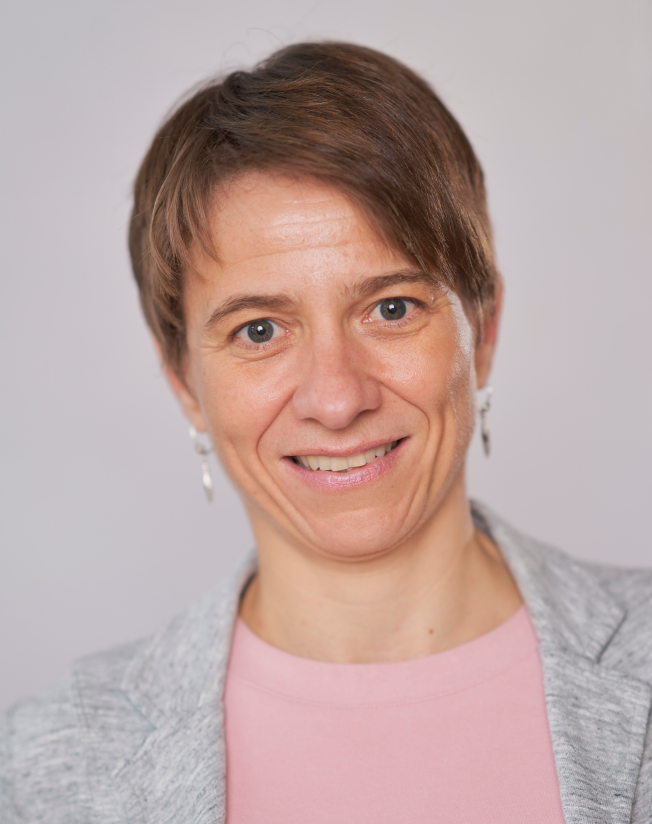
Prof. Dr. Barbara Schraml
Walter-Brendel-Centre of Experimental Medicine
University Hospital Munich
Ludwig-Maximilians-Universität München
Planegg-Martinsried, Germany
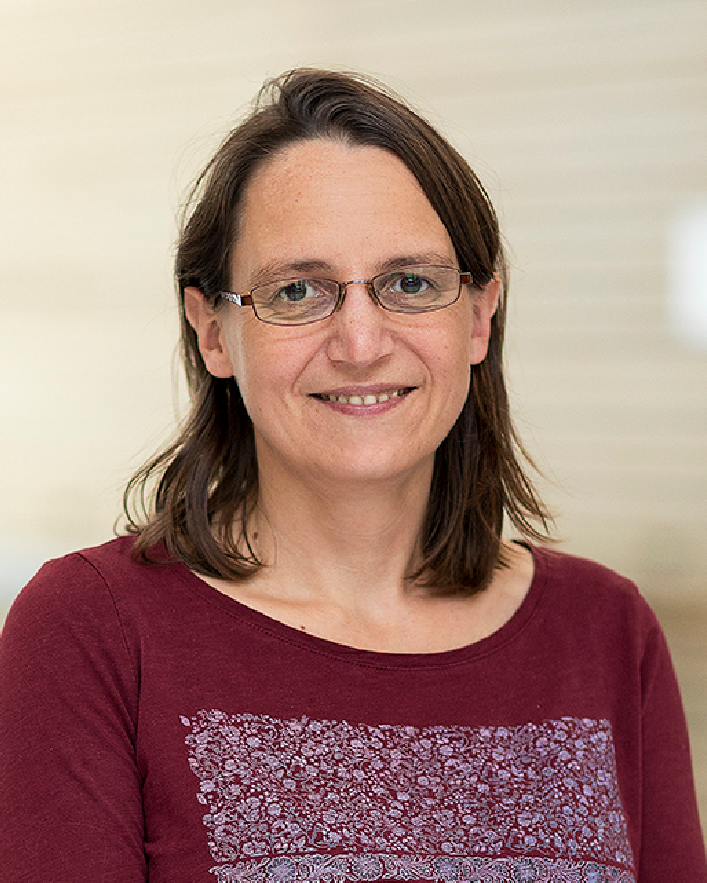
PD Dr. Katja Steiger
Institute of Pathology
School of Medicine
Technical University of Munich
Munich, Germany
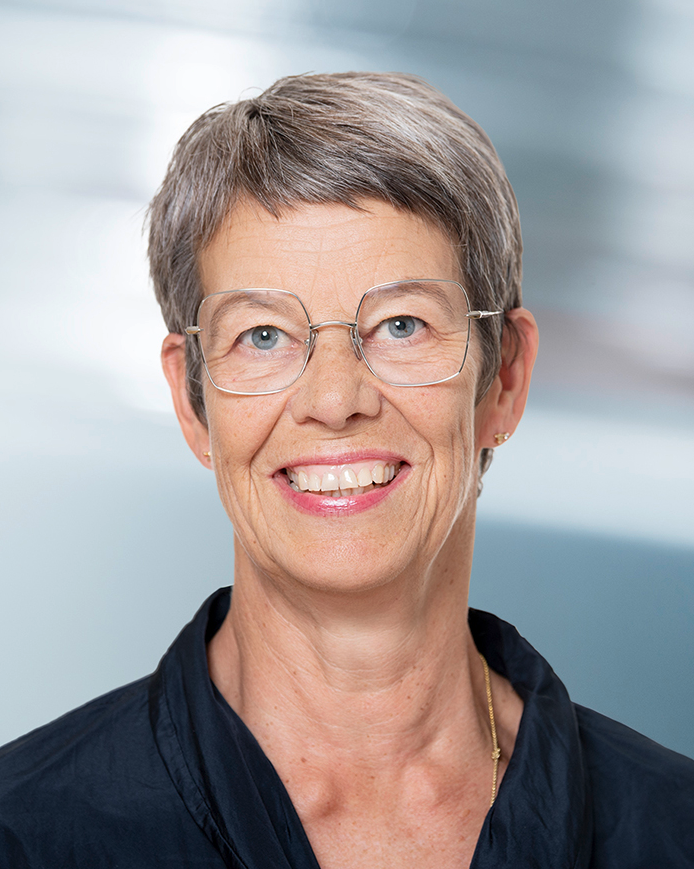
Prof. Dr. Maries van den Broek
Institute of Experimental Immunology
University of Zurich and
Comprehensive Cancer Center Zurich
Zurich, Switzerland
Maries van den Broek studied biology at the University of Nijmegen, The Netherlands with a focus on biochemistry (isolation and characterization of collagen type IV and V from bovine lung and human placenta), molecular biology (cloning of surface antigens of sexual stages of Plasmodium falciparum) and immunology (characterisation of anti-DNA antibodies in murine and human systemic lupus erythematodes).
She received her PhD from the same university on animal models for rheumatoid arthritis. Maries performed her postdoctoral training in several laboratories, where she worked on malaria (Joep Meuwissen, University of Nijmegen, The Netherlands) and systemic lupus erythematodes (SLE) (Lucien Aarden, University of Amsterdam, The Netherlands). She moved to Zurich in 1994 to work as a principal investigator on anti-viral immunity and T-cell tolerance (Rolf Zinkernagel, Hans Hengartner, University of Zurich, Switzerland). From 2009 until 2013, Maries headed the Laboratory of Tumorimmunology in the Department of Oncology (University Hospital Zurich).
In 2014 her group became an independent research unit in the Institute of Experimental Immunology (University of Zurich). Her lab focuses on the interaction between the immune system and cancer using different animal models for cancer as well as material from cancer patients and as such performs fundamental and translational research.
Maries is a passionate scientist and rower.
Her motto: “If you want to catch a fish, you need to go fishing”.
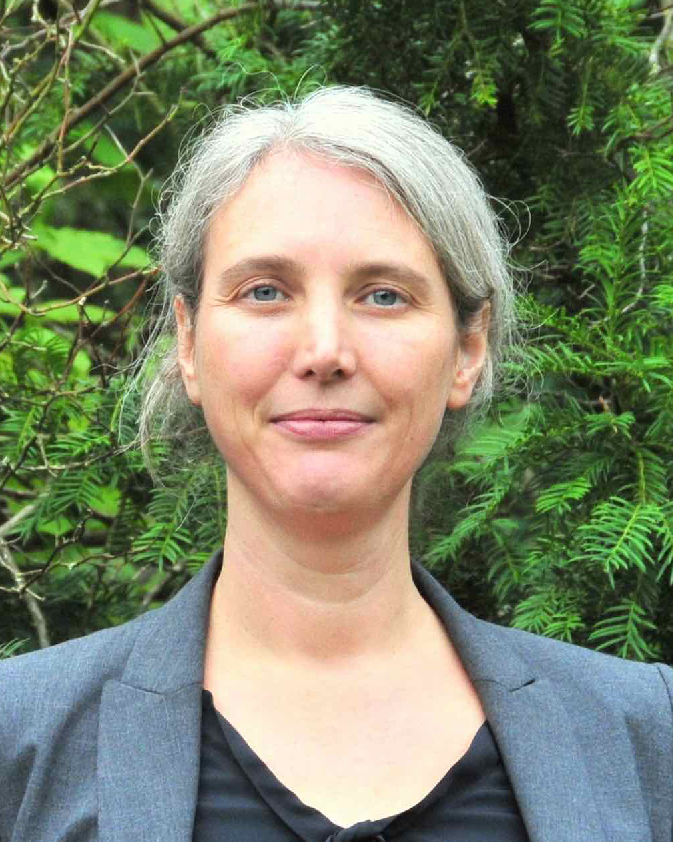
Prof. Dr. Claudia Waskow
Leibniz Institute on Aging
Institute for Biochemistry and Biophysics
Faculty of Biological Sciences
Friedrich Schiller University Jena
Jena, Germany
Dr. Waskow chairs the department Immunology of Aging at the Leibniz Institute on Aging. Her group has worked for many years on the regulation of hematopoietic stem cells, stem cell interactions with the niche, immune cell differentiation, and immunology and these approaches resulted in a series of publications in highly ranked journals. Dr. Waskow obtained her PhD in cell biology from the University Basel, Switzerland, conducted her postdoctoral research at the Rockefeller University in New York City, USA, and subsequently accepted an independent junior faculty position at the DFG-Center for Regenerative Therapies at the Technical University Dresden, where she was appointed full professor in 2014. Since 2017 Dr. Waskow is a professor for Immunology of Aging at the Friedrich-Schiller-University in Jena.
The work of Dr. Waskow focuses on mechanisms of the generation and regeneration of immune cells (hematopoiesis) from the embryo to the aged organism. The lab aims at the identification of cell-autonomous and -extrinsic factors to understand the amazing functional potential of hematopoietic stem and immune cells in steady-state and under inflammatory conditions using self-generated state-of-the-art model organisms. The research of the laboratory, thus, focuses on uncovering basic mechanisms that regulate hematopoietic stem cell and immune cell biology in the young and elderly, and this understanding may pioneer novel translational approaches.
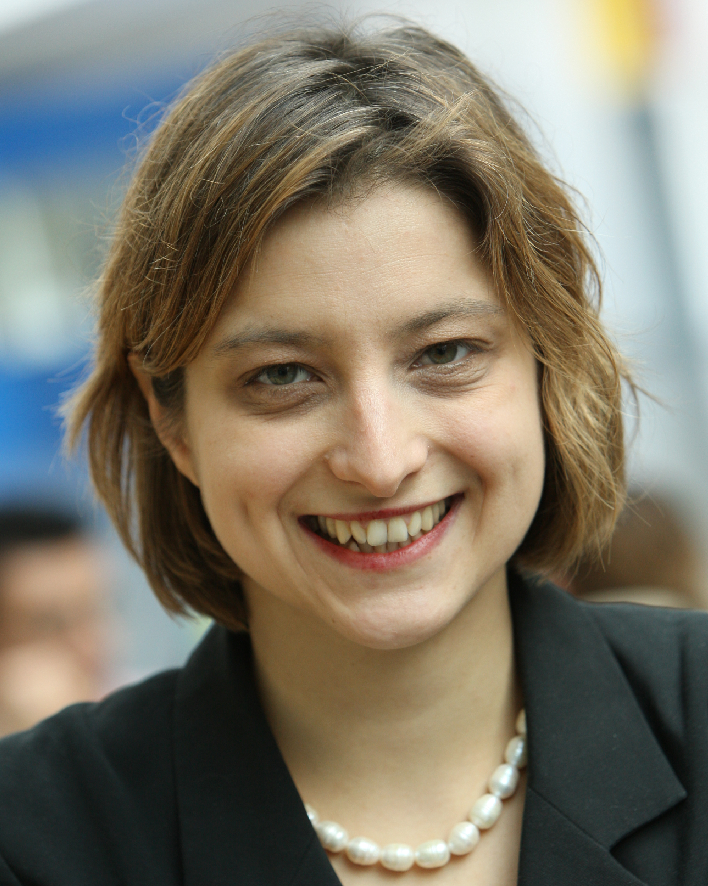
Prof. Dr. Isabell Welpe
Chair for Strategy and Organization
TUM School of Management
Technical University of Munich
Munich, Germany
Isabell M. Welpe holds the Chair for Strategy and Organization at the Technische Universität München in Munich, Germany. Her research interests are in New Public Management, leadership, future concepts of work and organisations, impact of digital technologies and social media and strategic innovation.
Isabell M. Welpe studied management at the Ludwig-Maximilians-Universität in Munich, Germany and at the Massachusetts Institute of Technology, Boston, USA. She completed an additional MSc at the London School of Economics before finishing her PhD at the University of Regensburg. She has been a visiting professor at the Keck Graduate Institute, Claremont, USA and a postdoctoral fellow at the Carlson School of Management at the University of Minnesota. Before taking over the Chair for Strategy and Organization at the Technische Universität München, she worked at the Max Planck Institute for Economics.
Isabell Welpe teaches Leadership, Human Resource Management, and Managing People and Organizations. She has taught on the faculty of Claremont University, EM Lyon, Ludwig-Maximilians-Universität and the University of Berne, Switzerland. She is an editorial board and review member of several academic and professional journals and the author of several books and edited volumes as well as over 60 articles and book chapters. Her research is published in journals such as Human Relations, Journal of Applied Psychology, Journal of Business Venturing, Journal of Personnel Psychology, Organization Studies, and others.
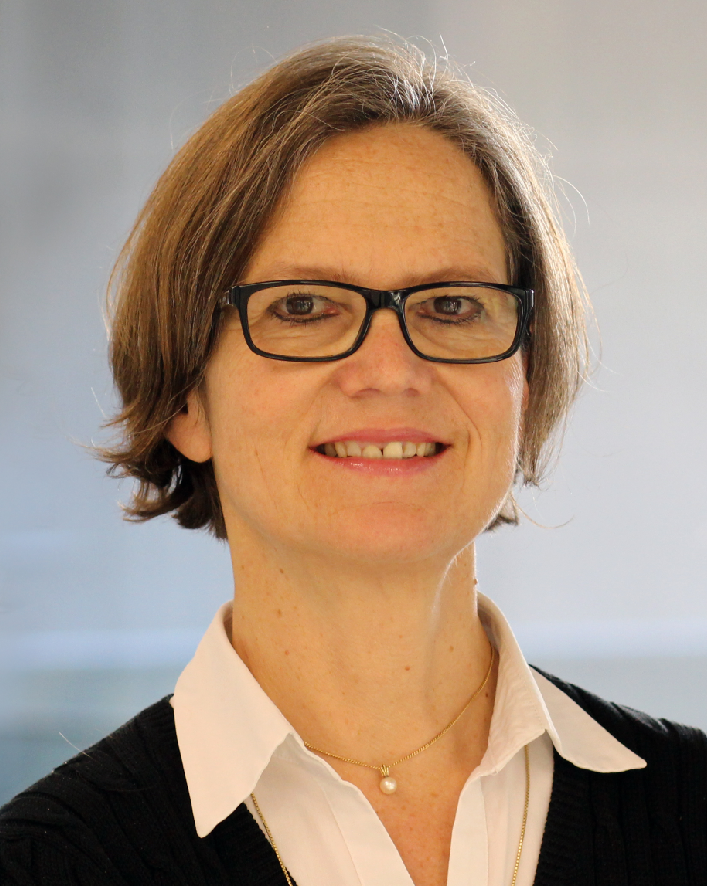
Prof. Dr. Sabine Werner
Department of Biology
Institute of Molecular Health Sciences
ETH Zurich
Zurich, Switzerland
Sabine Werner has been Professor of Cell Biology at the ETH Zurich since February 1999, and she is currently vice-chair of the Department of Biology, ETH Zurich, and chair of the Swiss-wide collaborative research program SKINTEGRITY.CH.
She studied Biochemistry at the Universities of Tubingen and Munich and earned her Ph.D. at the University of Munich, after having completed her dissertation at the Max-Planck-Institute of Biochemistry in Martinsried in the department of Prof. Peter Hans Hofschneider in the field of cancer research. As a postdoctoral researcher she worked at the University of California San Francisco, where studied the molecular mechanisms of growth factor action and tissue repair in the laboratory of Prof. Lewis T. Williams. After her return to Europe she was a group leader at the Max-Planck-Institute of Biochemistry in Martinsried. In 1996 she obtained a Hermann-and-Lilly Schilling professorship of Medical Research at the same institute and from 1995-1999 she was also Associate Professor of Biochemistry at the Ludwig-Maximilians-University of Munich.
Her group studies the molecular and cellular mechanisms of cutaneous wound repair and liver regeneration, inflammatory skin disease and cancer with a focus on the roles of growth factors and their downstream targets in these processes.
Sabine Werner is an elected member of EMBO, the German Academy of Sciences (Leopoldina) and the European Academy of Sciences (EurASc).

Prof. Dr. Monika Wolkers
Sanquin Research
University of Amsterdam
Amsterdam, The Netherlands
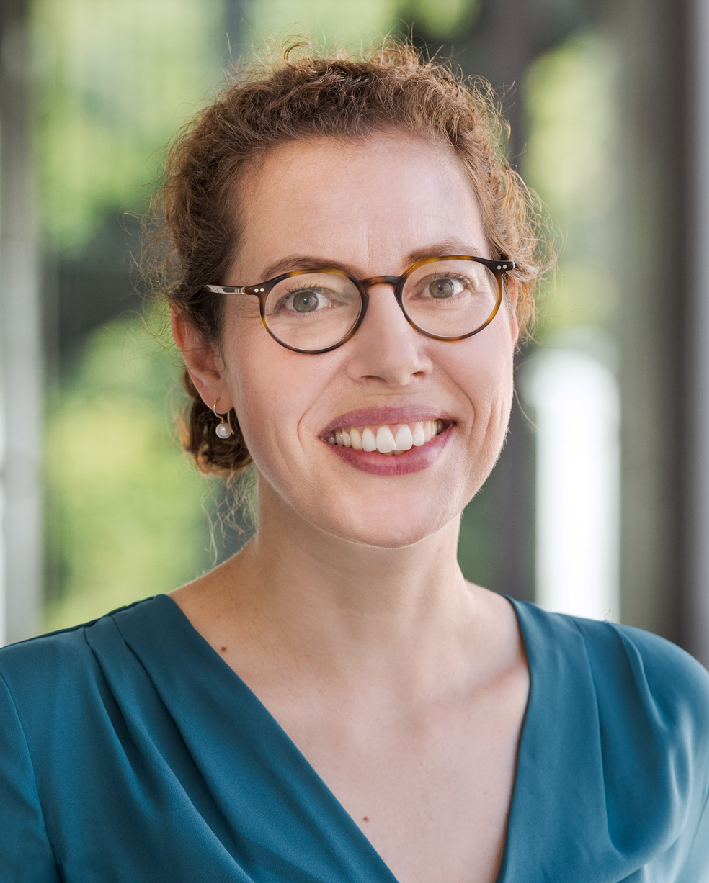
Prof. Dr. Christina Zielinski
Department of Infection Immunology
Leibniz Institute for Natural Product Research and Infection Biology
Hans-Knöll-Institute
Jena, Germany
The symposium will be held in a virtual format and is free of charge.

